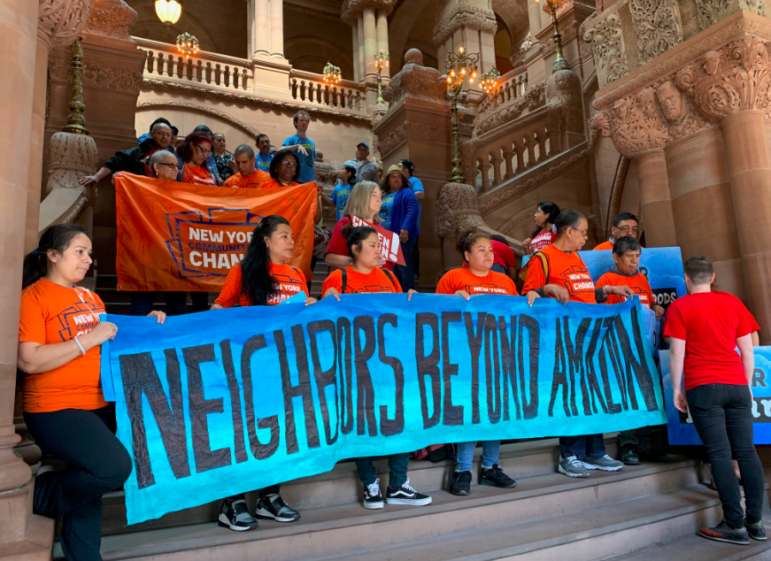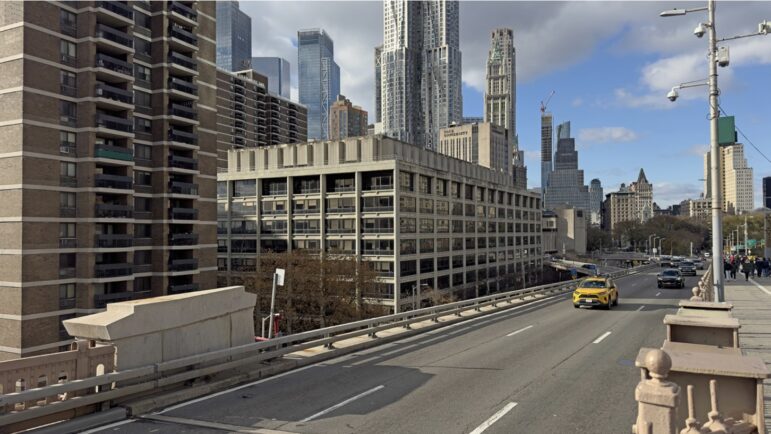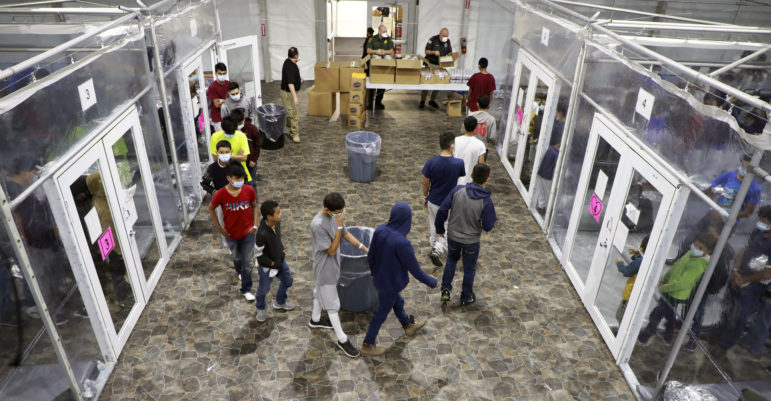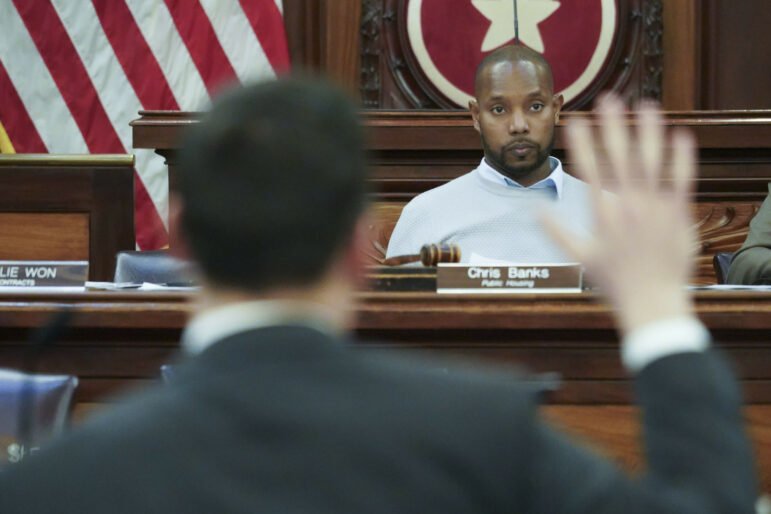
Make the Road NY
Amazon skeptics took their case to the state capitol earlier this year.
My home borough of the Bronx has experienced radical change over the years, perhaps none greater than the completion of the Cross Bronx Expressway. While designed to positively impact our lives, it had the opposite effect in some areas. Neighborhoods like the South Bronx experienced worsening urban decay and lowered property values. These side effects influenced public opposition to other projects, like the ill-fated Lower Manhattan Expressway.
Years later I witnessed a similar outcry when Amazon made plans to bring HQ2 to Long Island City. The deal was ultimately cancelled but it brought an important issue to the forefront. Ordinary New Yorkers feel they are being left behind at the expense of Big Tech. These concerns aren’t entirely unjustified. Just look at Amazon’s HQ in Seattle, where a huge influx of workers led to skyrocketing housing prices, homelessness, and congestion.
This doesn’t mean Big Tech can’t coexist with New York. We’ve seen plenty of examples of positive partnerships. Google recently announced plans to double its workforce in midtown Manhattan and Facebook and Apple have expanded their presence as well. The difference? Amazon didn’t have local support, in part because of the billions in tax incentives it needed.
Underserved populations are right to feel they won’t have opportunities with Big Tech. There are half as many Blacks and Latinos in tech as there are in the rest of the private sector, according to the U.S. Equal Employment Opportunity Commission. That same study found that 83 percent of tech executives are White and male. What’s more, higher education has become increasingly cost-prohibitive, isolating a large segment of the population.
While it’s true that some of the jobs at HQ2 require advanced degrees, that’s not always the case. Companies like Google no longer require candidates to have a college degree. Instead, they invest in initiatives to train and develop local, underserved talent. It’s a start, but more needs to be done.
In order to ensure systemic change, companies must invest in a support system to ensure minority candidates have the tools to succeed. Sometimes the only thing stopping a candidate from applying for a job is their circumstances. Maybe they don’t have enough money to pay for childcare, or they have no way to get to work. I’ve seen plenty of these situations at Workforce Opportunity Services (WOS), a nonprofit I founded. One of our program participants lost internet access, which he needed for an online course. WOS stepped in and paid for his Wi-Fi. In parts of the country where there’s no bus or subway system, we’ve paid for car services.
These are some of the little things that can make a big difference for underserved communities. Another is understanding the impact a business can have on a community. Long Island City is home to one of the largest public housing projects in the U.S. While Amazon planned to hold job fairs to promote opportunities, HQ2 would have led to gentrification and almost certainly priced people out of their homes. If Big Tech wants local buy-in, they need to consider how they can have the least negative impact on people’s lives.
Technology has the potential to change lives for the better. For every Seattle that has experienced the negative side effects of Big Tech, there’s a thriving city like Austin. New York may have lost out on jobs from Amazon, but that doesn’t have to happen again. Big Tech can succeed here, but only if its presence benefits all New Yorkers.
Dr. Arthur Langer is the director of the Center for Technology Management at Columbia University and founder of Workforce Opportunity Services.









3 thoughts on “Opinion: Amazon Deal’s Collapse Shows the Work Big Tech Must Do in NYC”
Google odes have a large and growing presence in NYC. But they are a bad example as they prefer to hire cheaper H1B visa holders rather than US citizens.
You have it backwards. “BIG TECH” has no obligation to do ANYTHING!!! for NYC. It’s quite the opposite. “BIG TECH”, or any other business that is considering NYC as a home, makes their decision based on their own interests. To assume that these companies have nowhere else to go, and must submit to a “SHAKEDOWN” to base their operations here is Idiotic. People and businesses have been fleeing this city and state for years based on this assumption.
I believe NYC now has more private-sector jobs than ever before. Amazon was going to get billions in tax benefits — if that’s a shakedown, where do I sign up for one?